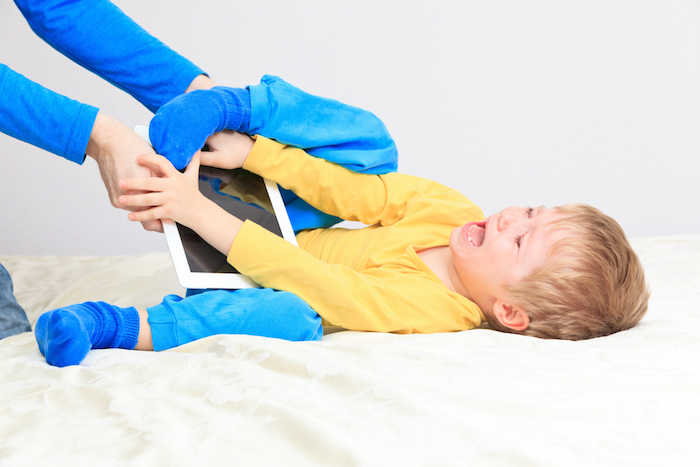
Is your little one turning into a digital device addict? Maybe it’s time for a Digital Detox
Can you get through a meal without aid from an iPhone? Does your little one have trouble focusing on tasks? Would s/he rather chase Pokémons than play tag with friends? While most mamas have to rely on screens every now and then to keep littlies (and ourselves!) occupied, when all these factors are combined they may point to digital addiction.
Other warning signs to look out for: Concealing the use of smartphones – does your child sneak his or her phone into bed, or do you catch him or her using it when you’ve already said no? Anxiety when separated from a smartphone is another red flag; does your kiddo get worried or upset if you take his or her device away?
At the same time, screens and technology definitely play an essential role in modern life. Recent research has shown that highly interactive digital apps can help children learn to follow directions and build problem-solving skills. In 2016 the American Academy of Pediatrics (AAP) notably revised its guidelines on screen time for young children to basically allow parents to use their discretion (easing off from their previous stance of zero-screen-time-before-age-2).
Bottom line: it’s important to expose children to screens in moderation, mama.
“There is no magic number when determining how much screen time is appropriate,” says says Helen Marjan, the CEO of Lorna Whiston Schools. With 25 years of educational experience under her belt, she knows children quite well. “At the end of the day, it’s all about balance.”
Keep in mind negative effects like eye strain and radiation, reduced attention spans, and anti-social behavior, all of which are on the rise. Studies have shown that Internet addiction affects about 24 million children in China alone, and 22% of kids in Hong Kong. The BBC recently reported that about 25% of kids in South Korean suffer from “nomophobia,” the fear of being without their smartphone for even a brief period of time!

So what can we do in Singapore to avoid these problems?
“Screen time should never replace time that parents can spend interacting with their children,” says Mrs. Marjan. “Balancing screen time with other types of developmental activities is essential. Making time for social interaction and creative play is as important as ensuring a balanced diet for your child.”
Here are some of her other tips for setting rules on screen time to prevent digital addiction:
- Emphasise interactive communication
Watching videos does not contribute to language development. Children need “talk time” – whether that happens face to face or online. - Choose quality content
There are more than 80,000 “educational” apps available on iTunes and Google Play. A little research can help you find interactive digital applications that offer real learning value. - Play apps and games together
Interacting with your children is still the most important factor in their development. You can still engage with your children by playing apps and games together. This can promote their intellectual and social growth. - Set “no digital” time
Put down devices during meals to encourage family interactions, and limit your child’s screen time, especially before bed as the light from devices can interfere with sleep patterns. - Reserve time for creative play
Children still need physical activity and unstructured play time to explore, discover, engage their senses and use their imaginations. The old “two-hour rule” may be outdated, but you can still set reasonable time limits on digital media use to get your child away from the screen and back into the real world.
“Being aware of the potential benefits and pitfalls of digital media is the first step to making informed decisions about how much and what type of digital content you want your child to be exposed to,” says Mrs. Marjan. “As a parent, you are likely to be in the best position to know what will work for your child.”
Want to know more mama, or are you concerned about your child’s potential digital addictions? Contact Singapore’s Touch Cyber Wellness Hotline at 1-800-377-2522.
Lorna Whiston Preschool
1 Stadium Place, #01-28, Kallang Wave Mall, Singapore 397628, Tel: (+65) 6448 8846
9 Winchester Road, Singapore 117783, Tel: (+65) 6272 8826






 View All
View All




 View All
View All











 View All
View All





